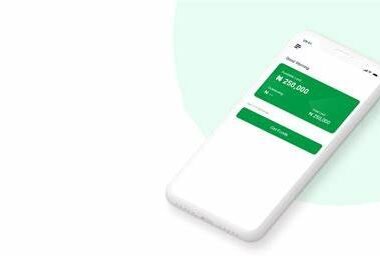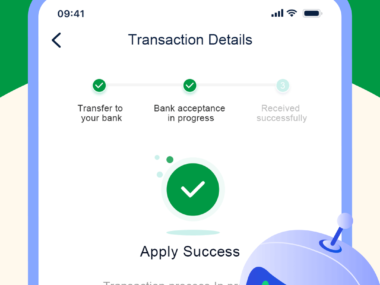You’ve made the decision to apply for a loan, whether it’s for an emergency, a business opportunity, or to cover unexpected expenses. The next step is signing the loan agreement, but do you know exactly what you’re agreeing to? The excitement of securing funds can sometimes cloud our judgment, but understanding the fine print is crucial. Many people jump into loan agreements without fully understanding the terms, only to face hidden fees, skyrocketing interest rates, and harsh repayment schedules later on.
If you’re reading this, chances are you’re in a position where you need money and want to make sure you’re doing it the right way. Whether you’re borrowing to cover medical expenses, start a small business, or address any emergency, it’s vital to understand what’s at stake. Let’s take a step back and ensure that you’re fully equipped to make the best financial decision for your future. This article will walk you through the essential points to check before signing any loan agreement.
You can also read:
- How to Get Fast Funds with Instant Approval and Easy Terms!
- Are There Agricultural Loans for Farmers in Nigeria?
- How Can Rural Farmers Access Loans Without Bank Accounts?
- What Types of Loans Are Available to Nigerians, and Which One Suits My Needs Best?
- How Can I Manage My Loan Repayment If I Have a Fluctuating Income?
- How to Get Quick Loan Approval Without Stress in Nigeria
- How to Apply for Loans Without Being Rejected in Nigeria
- Proven Steps to Secure a Loan Without Collateral in Nigeria
- The Secrets to Getting Your Loan Approved on the First Attempt
- How to Borrow Money Safely Without Falling for Scams
- How to Access Loans Fast Without Long Bank Delays
- How to Apply for a Loan Without a Guarantor or BVN
- The Easiest Way to Get a Loan Without Collateral in Nigeria
- Best Loan Options in Nigeria for People with No Steady Income
- Smart Strategies to Get Your Loan Approved Faster
- How to Access Loans for Your Business Without High Interest Rates
- Top Mistakes to Avoid When Applying for a Loan in Nigeria
- How to Borrow Money Without Ruining Your Reputation
Why Do You Need the Loan?
Before jumping into the terms and conditions of a loan agreement, let’s first understand why you’re considering borrowing. People take out loans for a variety of reasons, and it’s essential to be honest with yourself about the purpose. Whether it’s for an emergency, personal expenses, or business ventures, loans can provide immediate relief. However, it’s vital that the loan is used for its intended purpose, as misusing the funds can lead to additional financial stress in the future.
The Loan Agreement: What You Need to Check
Now that you’ve determined why you need the loan, let’s talk about what to check before signing the loan agreement. Loan agreements may seem straightforward at first glance, but there are often hidden clauses that can significantly impact your financial health. Here’s what you need to carefully review:
1. Loan Amount and Disbursement Process
- Ensure that the loan amount you’re applying for matches your needs. Check if the disbursement process is clear: How will the money be transferred? Will it go directly to your bank account, or will you have to provide additional details for processing?
2. Interest Rates
- One of the most critical elements of any loan agreement is the interest rate. Interest is how the lender profits from the loan, and it’s important to know how much extra you’ll be paying on top of the original loan amount. Some loans may have variable interest rates that could increase over time, while others offer fixed rates.
- Tip: Always ask if the interest rate is annual percentage rate (APR) or monthly, and how it is calculated.
3. Repayment Terms
- What are the repayment terms? Review the repayment schedule carefully. Is it weekly, monthly, or flexible? The repayment term will affect how much you pay back each time, and how long you’ll be in debt.
- Tip: Make sure the loan fits within your budget, and that you have a clear understanding of when each installment is due.
4. Fees and Charges
- Look out for any additional fees, such as processing fees, service fees, or late payment penalties. Some loans have hidden charges that can make the total cost much higher than you initially expected.
- Tip: Ask about all fees upfront and ensure they are clearly outlined in the agreement.
5. Prepayment Penalties
- Some loan agreements include penalties for paying off the loan early. While this might seem like an unusual clause, it can prevent you from saving on interest if you’re able to repay faster than expected.
- Tip: Ensure you’re clear on any penalties for early repayment, and whether they are applicable to your loan.
6. Eligibility Requirements
- Before signing, make sure you meet the eligibility requirements for the loan. Whether it’s a certain credit score, employment status, or income level, eligibility criteria are often a determining factor for whether or not your application is approved.
- Tip: If you’re unsure whether you qualify, speak with a representative from the lender before applying.
7. Consequences of Defaulting on the Loan
- What happens if you miss a payment or default on the loan? Most loan agreements outline the steps the lender can take to recover the debt, including reporting to credit bureaus, charging late fees, or even taking legal action.
- Tip: Understand the consequences and penalties of defaulting before signing. Make sure you have a realistic plan for repayment.
How to Plan for Loan Repayment
Securing a loan is just the first step; repaying it is where many people face difficulties. Planning your repayment strategy is essential to avoid falling into debt. Here’s how you can ensure you’re on top of your repayment plan:
- Create a Detailed Budget: Prioritize the loan repayment in your monthly budget. Allocate a portion of your income toward the loan to avoid falling behind on payments.
- Set Up Automatic Payments: If the loan allows, consider setting up automatic payments to ensure you never miss a due date. This will help you avoid late fees and maintain a good relationship with your lender.
- Make Repayments a Priority: When your loan repayment is due, make it a priority over non-essential expenses. Ensure you’re able to meet your obligations before spending on other things.
- Don’t Borrow More Than You Can Repay: Resist the temptation to take on larger loans if you’re unsure about your repayment capacity. Stick to loans that match your income and repayment ability.
Swifund Loans: A Breakdown of Their Loan Options
Swifund is one of the mobile loan providers in Nigeria that offers quick financial assistance. Below is a table outlining their loan offerings, interest rates, eligibility requirements, and repayment terms.
| Loan Type | Interest Rate | Eligibility Criteria | Repayment Method |
|---|---|---|---|
| Personal Loan | 5% – 18% per month | Nigerian citizens, 18 years and above, with regular income | Weekly or monthly payments via bank transfer or mobile wallet |
| Emergency Loan | 10% – 25% per month | Must provide proof of emergency (medical, family, etc.) | Flexible repayment terms, up to 2 months |
| Business Loan | 7% – 22% per month | Must be a registered business or self-employed with proof of income | Weekly or monthly payments based on business cash flow |
| Salary Loan | 4% – 15% per month | Employed individuals with a consistent salary | Deductions from salary via bank |
For more information, visit Swifund’s website.
Advice from Edujects
“On no account should you take beyond what you can repay. This is an opportunity, but don’t overuse it just because you have access to it freely. Don’t take beyond the capacity of your income expectations. Endeavor to use the money for its intended purpose. Learn from the business side of the Igbo community. They would never borrow money for anything other than what it was meant for. An emergency requires an emergency purpose, and this emergency will come and go. Now that you have provision through this loan, use it to fill the gap of the emergency. As soon as the emergency is fixed, quickly source for the repayment plan. This would give the bank more credibility to help others solve their emergencies when they arise. Let’s build a trust-driven Nigeria, where companies like Swiffund can invest more in helping people in need. The best way to encourage Swiffund to increase the number of loans given to emergencies is to pay back on time. Don’t wait until they are chasing you with phone calls. As you take the loan today, start planning for the repayment today.”
When it comes to signing a loan agreement, knowledge is your most powerful tool. By carefully checking the terms, understanding the interest rates, fees, and repayment schedules, you can make an informed decision that helps you secure the funds you need without falling into financial pitfalls. Always remember to borrow responsibly and have a solid plan for repayment. Swifund and other mobile loan providers can offer quick solutions, but only if you understand the full scope of the agreement.






